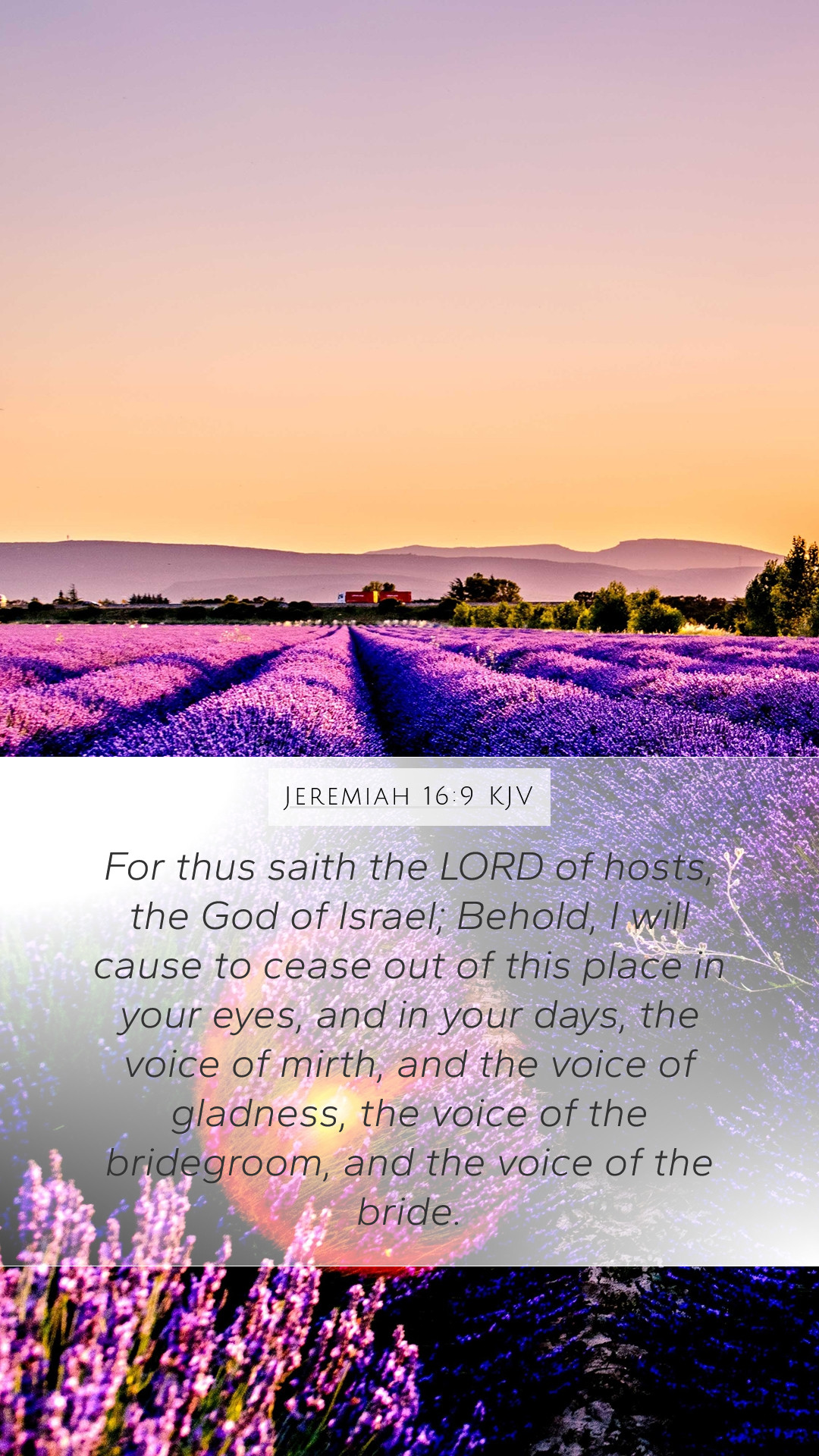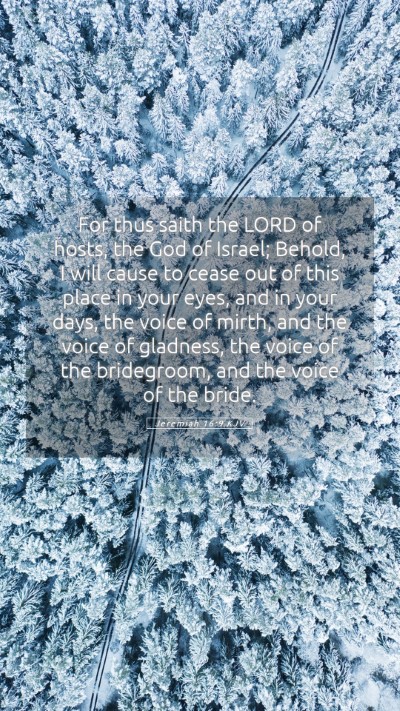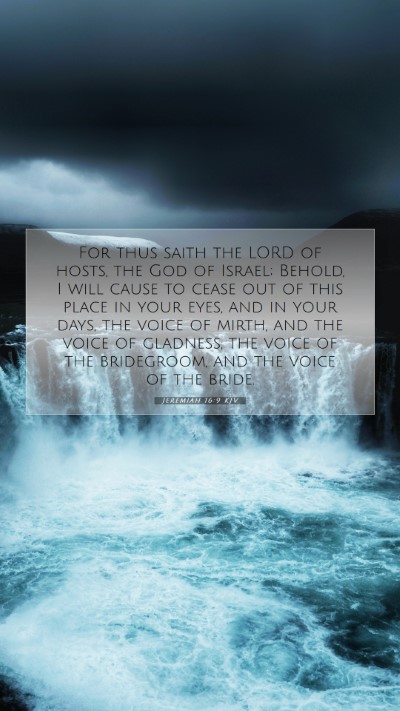Understanding Jeremiah 16:9
Jeremiah 16:9 states:
"For thus saith the Lord of hosts, the God of Israel; Behold, I will cause to cease out of this place in your eyes, and in your days, the voice of mirth, and the voice of gladness, the voice of the bridegroom, and the voice of the bride."
This verse communicates a solemn message from God to His people regarding the impending judgment and the cessation of joy in Israel. To better understand this profound declaration, we can glean insights from respected public domain commentaries.
Bible Verse Meanings and Interpretations
The context of Jeremiah 16 reveals God's grievance against Israel for their persistent idolatry and disobedience. As we analyze verse 9, several themes emerge:
- Divine Judgment: Matthew Henry highlights that God is proclaiming a time of sorrow that will replace joy due to the nation's sinfulness. This serves as a warning and a call to repentance.
- Loss of Joy: According to Adam Clarke, the 'voice of mirth' and the 'voice of gladness' symbolize the vibrant celebrations of life that will be stripped away. This signifies both the physical and spiritual desolation that will come upon the land.
- Historical Context: Albert Barnes points out that this prophecy corresponds with the historical reality of Babylonian captivity, which resulted in the destruction of Jerusalem and the exile of its inhabitants. The loss of marital joy reflects the broader societal upheaval.
In-Depth Bible Verse Analysis
Interpretation of Jeremiah 16:9 also involves considering the metaphoric representations within the verse:
- The Wedding Imagery: The mention of 'bridegroom' and 'bride' symbolizes unity, love, and celebration, which will be absent in the coming times of hardship.
- Theological Implications: The cessation of joy is a direct consequence of sin, reminding us that disobedience to God leads to alienation from His blessings and presence.
- Call to Repentance: Henry suggests this sorrow serves as an urging for the people to turn back to God and reclaim the joy that comes from obedience.
Application of Bible Verse to Daily Life
This verse urges us to reflect on our lives. How do our actions and choices influence the joy we experience? Jeremiah 16:9 prompts a few applications:
- Self-Examination: Believers should consider if there are areas in their lives where sin might be hampering their joy and relationship with God.
- Restoration: Just as the people of Israel were called to repentance, individuals today should seek reconciliation with God to restore joy in their lives.
- Celebration of Life: The imagery of weddings reminds us that joy and celebration are integral to faith, and we should strive to create an environment of love and happiness.
Related Bible Verses
Jeremiah 16:9 connects deeply with several other scriptures that emphasize similar themes of judgment and the restoration of joy:
- Isaiah 24:7-8: Discusses the end of joy in the land due to desolation.
- Lamentations 5:15: Reflects on the loss of joy among the people of Israel after their destruction.
- Revelation 21:4: Offers hope of future restoration, where God will wipe away every tear and sorrow will cease.
Conclusion
Jeremiah 16:9 serves as a compelling call to reflect on our lives and choices in relation to God's will. By understanding the historical and spiritual significance of this verse, believers can gain profound insights into maintaining a joyful relationship with God. Through Bible study insights and spiritual interpretation, we can apply these teachings to foster a meaningful spiritual life.


